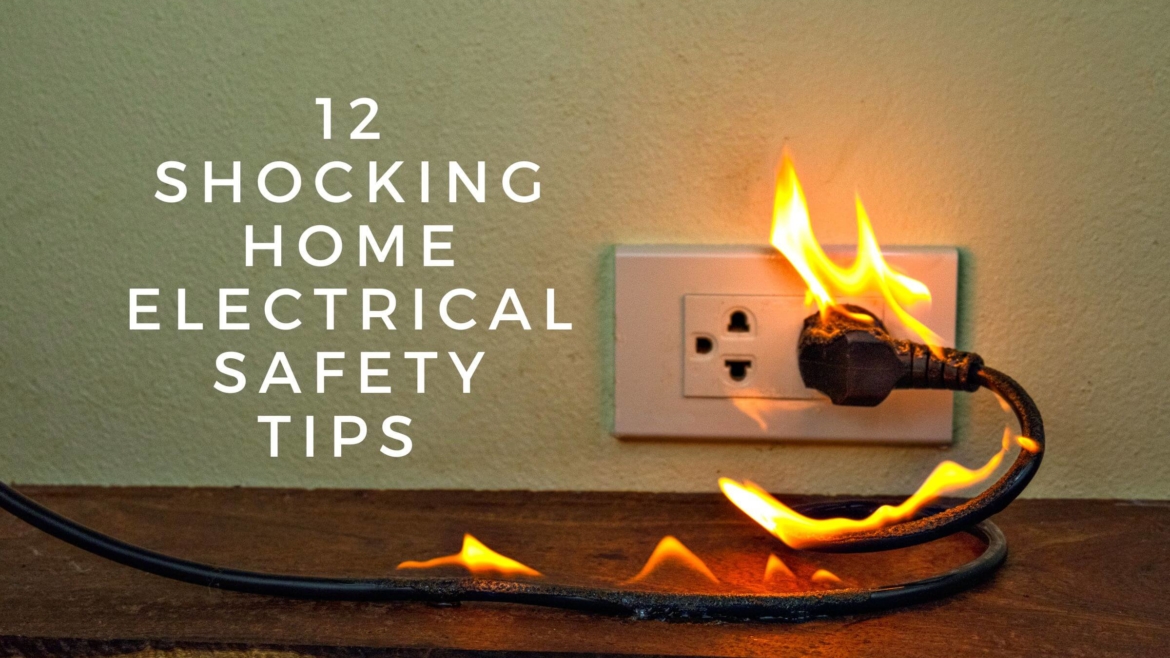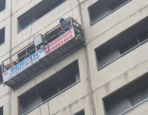Electrical safety is a serious matter. Electrical accidents are among the leading causes of death in the Africa, and even minor mistakes can cause severe injury or death. It’s important to educate yourself about home electrical safety, but it’s also important to have someone who knows what they’re doing by your side when working on your home’s electrical system (or any other type of wiring). As such, we’ve put together this guide to help you avoid potential hazards while working around electricity—and know that if something goes wrong with your home’s wiring or circuits, you’ll be able to get professional help from Serotny Global right away.
Don’t use cords in place of permanent wiring.
Cords are not designed to carry the same amount of electricity as a permanent wiring solution. This means that when you use cables, you’re putting yourself at risk of fire or electrical shock. You should only use them for temporary solutions, such as moving your TV from one room to another or taking it down from its stand during an electrical storm (or any other time when you don’t want things around the TV to get fried).
Don’t overload outlets or extension cords.
A good rule of thumb is to avoid overloaded outlets and extension cords. If an outlet has a “load limit” (the maximum amount of power it can safely handle), try to avoid using anything that would exceed that limit, especially if you’re going to plug something into it. The same goes for extension cords—don’t overload them either!
If you do accidentally overload an outlet or extension cord, don’t panic: It may take a few minutes for the circuit breaker to trip. If this happens at night when everyone else is sleeping soundly, there’s nothing wrong with turning your lights back on until morning comes around again (and then unplugging).
Use only surge protectors and power strips with built-in circuit breakers.
When you’re looking for a surge protector, make sure that it has a UL label. This means that the device meets UL standards, which are set by Underwriters Laboratories (UL). Surge protectors with this label can help prevent potentially dangerous electrical surges from damaging your equipment and appliances.
They also have an indicator light that tells you whether or not the surge protector is working properly: if there’s no light on at all or if it’s blinking rapidly, then your device should be removed immediately because its power supply may be faulty.
Make sure your home has adequate electrical wiring for the number of appliances that you want to use.
- Don’t overload the power supply: Remember that each appliance uses a different amount of electricity, so if you have too many in your house, it can cause a fire.
- Don’t use extension cords with appliances that draw a lot of power: Extension cords are convenient and allow you to plug in several items at once, but they’re also dangerous because they limit how much electricity is flowing from the source (the wall outlet). The longer the length of an extension cord used for multiple devices at once, the more risk there is for overheating and fire hazards.
- Consider installing surge protectors on every circuit in your home: A surge protector will protect against voltage spikes caused by lightning strikes or other sudden surges in power that could damage sensitive electronics like computers or televisions.
Use the appropriate wattage for light bulbs, especially around flammable materials such as curtains or paper.
- Use the appropriate wattage for light bulbs, especially around flammable materials such as curtains or paper.
- Choose a lamp with a GSA (Grounded Shielding Assembly) to protect against electrocution in wet outlets.
- Install ground fault circuit interrupters on all new receptacles and switches, as well as in any existing electrical devices you have installed since July 2015.
Make sure all electrical work in your home is done by a qualified electrician.
You might have heard the old adage that electricity is dangerous. And it’s true: Electricity can kill you in a number of ways, including fires and explosions.
But it also may surprise you to learn that electrical work isn’t just dangerous—it can also cause injuries or other damage if not done properly. So while it’s important to understand how electricity works (and why we should be careful with it), there are some things even electricians don’t understand about their craft that could lead them into danger:
- Electrical work requires knowledge of wiring diagrams, which are often confusing and difficult for non-electricians to decipher;
- There are many different types of electrical equipment used in homes from appliances such as televisions and computers through lighting fixtures like chandeliers or wall sconces;
- Electrical wires run throughout your home everyday;
Never touch a downed power line or anything it’s touching.
- Never touch a downed power line or anything it’s touching.
- If you see something on the ground, don’t try to move it yourself without help from professional electricians.
- If you feel an electric shock, call 911 immediately and stay away from the area until officers arrive at your home or business location.
If you have young children, use tamper-resistant receptacles to help prevent shock (these are required in new construction).
If you have young children, use tamper-resistant receptacles to help prevent shock (these are required in new construction).
A tamper-resistant receptacle is a receptacle that can only be opened by inserting the correct key. This prevents children from turning off power and causing electrical shock. To install one:
- Cut the bottom of your wall socket cover so that it fits into the wall outlet without falling out or getting stuck inside. Then remove any screws holding down your existing cover plate on top of it, which may include some hidden ones behind an adjacent piece of drywall;
- Make sure there’s enough room between all remaining pieces of drywall before removing them; if necessary, use a hammer drill bit or electric screwdriver with an extra long handle and large drill bits for this job;
Keep trees trimmed away from overhead lines and wires, including television antennas and satellite dishes.
One of the most frustrating things about living in an area where trees grow is that they can cause all kinds of problems. Not only do they block your view and make it hard to get around, but they can also pose a risk to electrical lines and wires as well.
Tree trimming is a dangerous activity that should be avoided at all costs because it can cause fires, electrocution deaths, or even property damage if you accidentally cut into an electrical line while trimming your tree branches. If you want to trim your trees safely without causing any issues with power outages or fires then we recommend hiring someone else who specializes in this type of work instead of doing it yourself – especially when there are so many other people around who could get hurt by mistake!
If you’re working outside near overhead electrical lines, stay at least 10 feet away from any power lines.
If you’re working outside near overhead electrical lines, stay at least 10 feet away from any power lines.
Stay away from power lines and their supporting structures (such as trees and ladders). Do not touch or climb on them. The electricity can be dangerous to your health and could cause serious injury if it touches you.
Do not use metal objects such as screwdrivers or pliers in an attempt to repair damaged power lines; this will pull apart wires, causing sparks that could start fires or electrocution!
Turn off the power to an area you’re working on before doing any electrical repairs or maintenance.
Powering on and off is one of the most common mistakes made in home electrical work. And it’s also a big mistake because it can cause serious injury or death, especially if you’re working with tools that require electricity to function.
Turning off power at the main circuit breaker before entering an area where repairs are being done is essential for safety. Not only does it reduce risk of electrocution, but also eliminates any chance of a stray voltage causing problems for you or your family members who may be present during work hours (such as kids playing video games).
Always contact an expert when working with electricity
You can’t be a professional electrician. You might have some experience, but you’re not qualified to work with electricity. If you’re going to work with electricity, I recommend that you contact an expert or visit www.serotnyglobal.com that has the knowledge and training necessary to safely handle it.
Conclusion
We hope that you now feel more confident in your home’s electrical systems, whether it’s because of the tips we’ve shared or simply because you realize how important they are to protecting the people who live there. As we’ve mentioned before, taking the time to ensure that everything is done correctly can save lives in a flash—and if that means walking away from a project until you get some help from an expert, then so be it!
Call +234-915-883-4513, +234-915-883-4514 or visit www.serotnyglobal.com for help.


